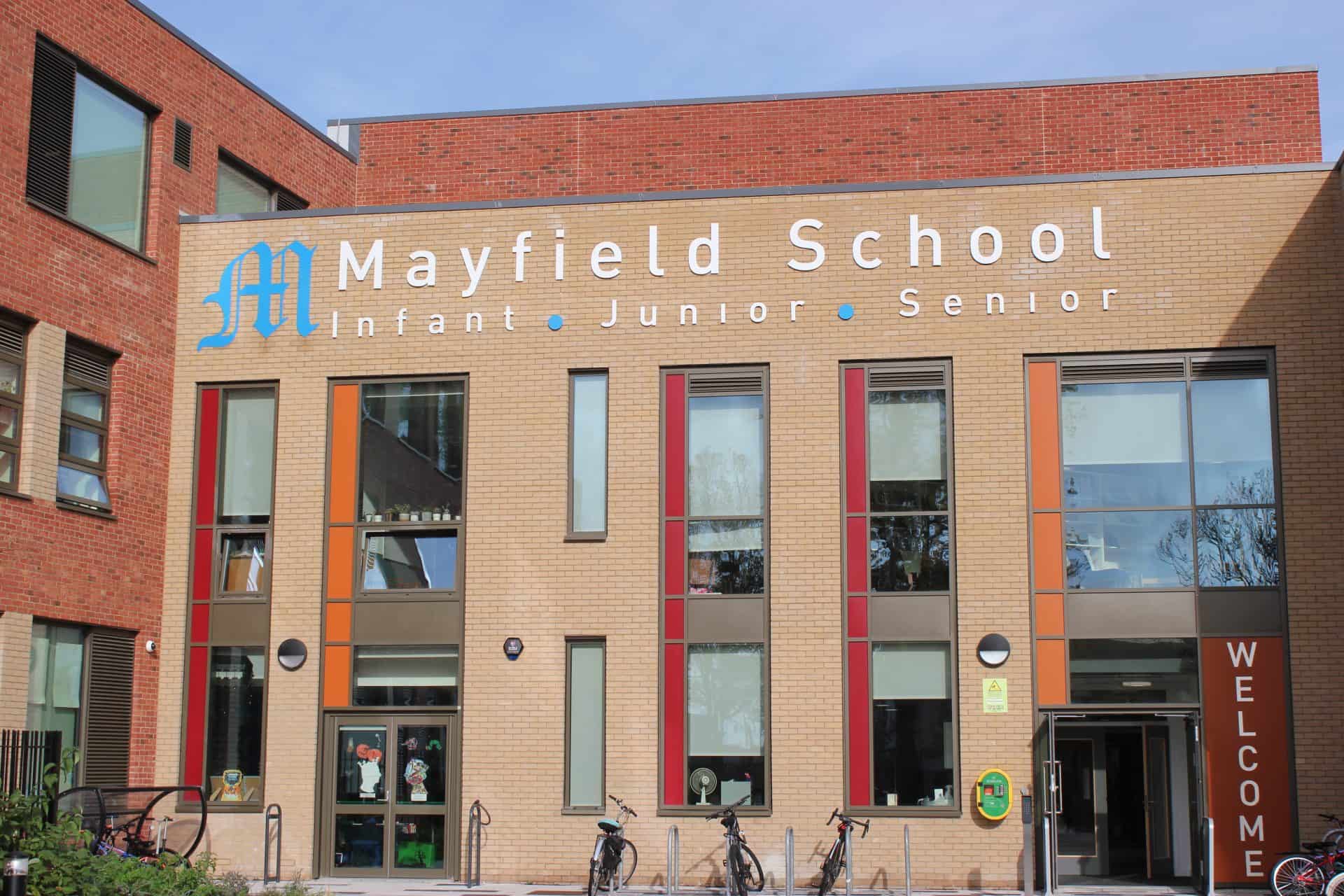
In October 22 we were thrilled to be invited to Mayfield school in Portsmouth to film the teachers and students launching their whole school approach to mental health (the world premiere of the film coming soon!). We also had a chance to catch up in person with Mindapples’ champions Mrs Jude Firth and Mrs Verity Howard, who both completed the Mindapples’ half-day virtual course earlier this year.
Mayfield is a large through school with 200 staff and almost 1500 pupils from 4- to 16-year-olds. We sat down with headteacher Mr Ashley Howard who told us why the whole school approach to mental health was so important.
“We need to be talking positively about Mental Health, everyone has it, but it looks different for every single person and it’s how we share and talk about it openly that we can start to support each other and ourselves individually. There are lots of testing periods throughout the school the government has imposed on schools and education which bring anxiety and tension to school staff… which also leads to pupils’ anxieties. Preparations, coursework, their studies, revision, pressure and obviously in between that you’ve got parents evenings where staff are talking to parents about what their target grade is and its pupils having to meet those expectations. There is a huge amount of pressure through a child’s education from the beginning and it’s thinking as a school how can we reduce those stresses, reduce those anxieties”.
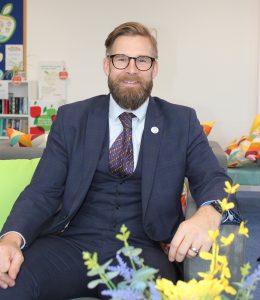
“At Mayfield with the introduction of Mindapples, actually it’s the opportunity to talk about and be open about our own Mental health, talk about what other strategies we use individually but how we can share that much wider, and maybe partner up, pair up and even keep coming back to this so it’s a much bigger profile across the school”.
Mrs Howard, Mindapples’ champion, SEN teacher and mental health support team lead at Mayfield told us, “Looking at research and data for SEND there is a pinch point when they come to light and statistically when they around age 10 so in year 5 and 6 then we had COVID, the negative player in wellbeing. When Covid happened some children had SEND needs coming to light which weren’t recognised. Those children are now in year 8 and 9. Citywide those particular year groups are displaying sometimes poorer Mental Health or poorer social skills and it’s because they have missed out on those key learning experiences we have. We hope that by implementing the whole school approach, that in 2 years’ time they go happy into the global community.”
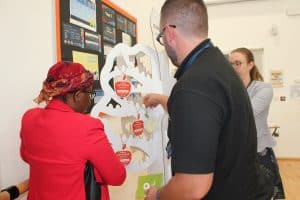
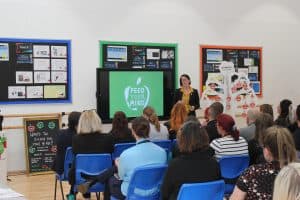
Mindapples’ champion Mrs Firth shared her training with all the teachers after school and they all discussed what affects their minds and thought about their own 5 a day for the mind and hung their apple cards on the Mindapples’ tree. We asked Mrs Firth what she thought about the Mindapples training and resources she had been given. “As members of staff the resources we have been given have been brilliant, we can just take them and run with them for delivering to all our staff and also delivering to our pupils. They are really eye catching, really colourful and really engaging for staff and pupils, so they’ve been really helpful”.
We also asked Mrs Firth about her top 3 Mindapples:
Make sure I’m drinking enough
Make sure I’m eating breakfast
Walking her dog
Following their training the teachers then shared what they had learnt with their tutor groups and students discussed their own Mindapples. Mrs Howard told us that “The children in senior school can see several different teachers in one day but they see their tutor every day and have that consistency of tutor time so it is the ideal opportunity to use something like Mindapples with children who they see daily and who they feel quite comfortable with pastorally, so we are teaching the kids really to help themselves.”
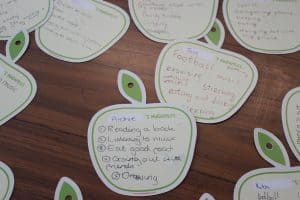
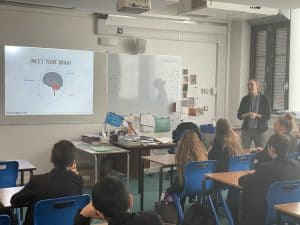
![]()
Fatima a pupil in year 8 told us, “When I do my Mindapples I feel peaceful and more concentrated on my life and also have a more organised routine and it helps my brain relax and be more mindful of my surroundings.”
Mr Howard told us, “Often what happens when people talk about mental health is that it has a negative connotation that something is wrong it’s not OK, in my opinion we need to be talking positively about mental health, everyone has it, but it looks different for every single person, individual to them.”
Of course, we couldn’t pass up the opportunity to ask what Mr Howard does for his Mindapples…
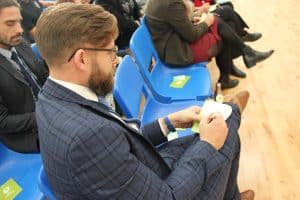
His top 3 are:
To get outside in the garden
Spending more time with his family particularly at the weekends
To take up running again after half term
What do you do regularly to take care of your mind? To find out more about the Mindapples schools programme please visit https://mindapples.org/charity/schools
